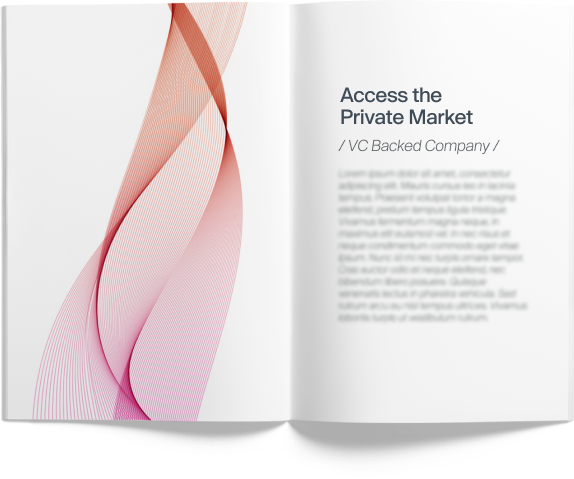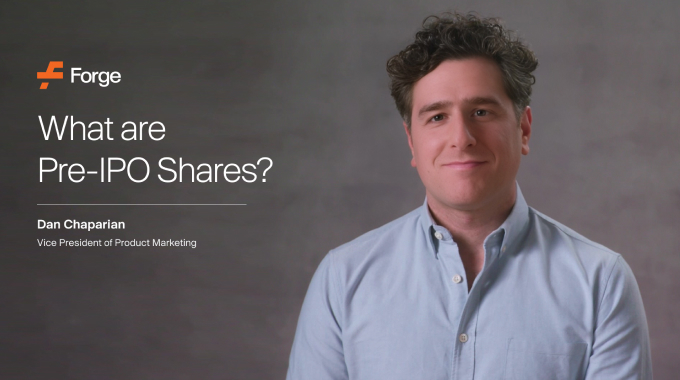Private Market Glossary
What does VC-backed company mean ?
A VC-backed company is a business that is at least partially funded by a venture capital (VC) firm’s investment fund. VC-backed companies are often startups that raise money in exchange for equity from VCs and other private market investors. These companies tend to be in a growth stage.

A better understanding of a VC-backed company
A VC-backed company can be partly or fully owned by one or more venture capital funds, as well as potentially other types of investors, like angel investors, private equity funds, or hedge funds.
It’s also possible that a venture capital firm would engage in a venture debt deal when investing in a private company, which doesn’t necessarily involve an equity exchange (though the debt may subsequently be convertible to equity upon the occurrence of certain events).
By being VC-backed, as opposed to just raising money from, friends and family, a startup might signal to others that it’s on a good growth trajectory. Logistically, being a VC-backed company can help a startup have the funding and access to operational resources that can support growth. For example, a company might raise millions of dollars from venture capital funds in a Series A funding round, and that money can be used to hire staff, invest in marketing, purchase inventory, etc.
What role does a VC-backed company play in the private market?
Many private market companies are VC-backed, though it is possible for a company to remain private without taking VC investment, such as if the company self-funds (i.e., bootstraps) its growth by reinvesting earnings. Overall, though, VC funding helps fuel the growth of the private market.
When a startup gets private funding from a venture capital fund, that can potentially act as a stamp of approval for the business model. Other investors might see that a VC fund is backing a new tech company, and they want to join in on the next fundraising round. Without the initial VC backing, perhaps the startup wouldn’t be able to get on another VC investor’s radar.
VC funds often participate in the relatively early stages of private funding, but a VC-backed company that grows into a unicorn, for example, might continue to attract more VC funding as it matures.
What are some examples of VC-backed companies?
Many well-known startups and businesses that have matured into larger tech companies are VC-backed. Some examples of VC-backed companies include*:
- Anduril: A defense technology company with VC funding from firms like Andreessen Horowitz.
- Mojo Vision: A developer of micro-LED technology with VC funding from firms like Accel.
- Relativity Space: An aerospace technology company developing the first fully autonomous rocket factory with VC funding from firms like General Catalyst.
- Ripple: A Fintech company enabling cross-border payment solutions with VC funding from firms like Lightspeed Venture Partners.
- Zipline: A manufacturer and operator of automated drone delivery services with VC funding from firms like Sequoia Capital.
*The companies indicated are provided for illustrative purposes only and neither they nor their results or experiences are representative of any broader market, nor is inclusion of a company an endorsement of the company. They are purely examples to provide context and clarity.
Most viewed companies in Q1 with funding from VC firms featured on forgeglobal.com as of March 2023. 



